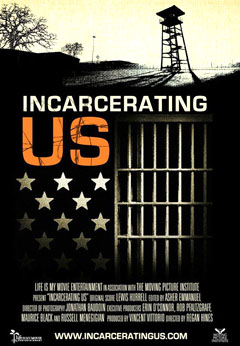
WASHINGTON—President Biden on Tuesday granted his first pardons and commutations to 78  people convicted mostly of nonviolent drug offenses, part of a broader White House effort to address inequities in the criminal-justice system.
people convicted mostly of nonviolent drug offenses, part of a broader White House effort to address inequities in the criminal-justice system.
Mr. Biden is issuing pardons to three people and
reducing the sentences of 75 others, many of whom had already been released to home-confinement in an effort to reduce Covid-19 spread in prisons. Most won’t see their sentences shortened for another year.
The president has faced criticism from prisoner-rights groups and other activists who complained that the White House was moving too slowly on clemency and changes to sentencing policy, issues that played prominently in his campaign.
Mr. Biden promised to confront the legacies of the “tough-on-crime” laws that he once supported in the Senate and that most congressional Democrats backed at the time. Critics say those policies disproportionately affected minorities and filled prisons with nonviolent offenders.
White House officials on Tuesday will also unveil a number of other measures aimed at expanding employment opportunities for people after leaving prison, helping people with convictions start small businesses and providing access to healthcare, housing and educational opportunities. The policies were unveiled amid rising rates of violent crime in some cities, which have become potential flashpoints ahead of the midterm elections.
“Helping those who served their time return to their families and become contributing members of their communities is one of the most effective ways to reduce recidivism and decrease crime,” Mr. Biden said in a statement.
Those receiving pardons include a former Secret Service agent who spent several years in prison after being convicted of trying to sell a copy of his Secret Service file; a 51-year-old woman who received a seven-year sentence for trying to transport crack cocaine for her boyfriend and an accomplice; and Dexter Jackson, 52, who pleaded guilty in 2002 to letting marijuana dealers use his pool hall to facilitate transactions.
All three have sought to improve their lives and communities in the years since they were released from prison, the administration officials said. Mr. Jackson, for example, converted his pool hall into a cellphone repair shop and hired local high-school students to work there.
Those receiving pardons and commutations were chosen through an effort that involved the White House Counsel’s Office and the Justice Department, the officials said, a shift away from former President Donald Trump’s approach to clemency that largely relied instead on the recommendations of political leaders, criminal-justice advocates and his friends and allies.
The Justice Department recently named Elizabeth Oyer, a former public defender from Maryland, to serve as its first permanent pardon attorney since 2016. She will oversee an office responsible for vetting clemency petitions, a workload that is likely to grow as Mr. Biden evaluates more such requests in the coming months.
The administration officials said many of Tuesday’s clemency recipients would have received a lower sentence if they had been charged with the same offense under current laws that lightened federal penalties for some drug offenders, including a sweeping criminal-justice overhaul Mr. Trump signed into law in 2018. They have spent an average 10 years in prison for nonviolent drug offenses, the officials said.
Advocates of criminal-justice overhauls welcomed the action but voiced disappointment that it didn’t go farther. Amy Ralston Povah, the founder of the pro-clemency group CAN-DO Foundation, said it was disheartening to learn that many on the list won’t see their clemency granted for months or, in some cases, another year.
One of those people is Rachel Hanson, 38, of Chicago, who was sentenced to more than 12 years in prison for cocaine offenses. She has been in home confinement since August, worried any minor misstep might violate the conditions of her release. She couldn’t attend her daughter’s evening gymnastics competition, for example, because it fell after curfew. Mr. Biden’s commutation won’t take effect for another year for her.
“I am grateful, and I know that I am super blessed that I am one of the few people who did get it out of the thousands of people eligible,” Ms. Hanson said in an interview. “But I am still worried at the same time, because anything can happen in a year.”














